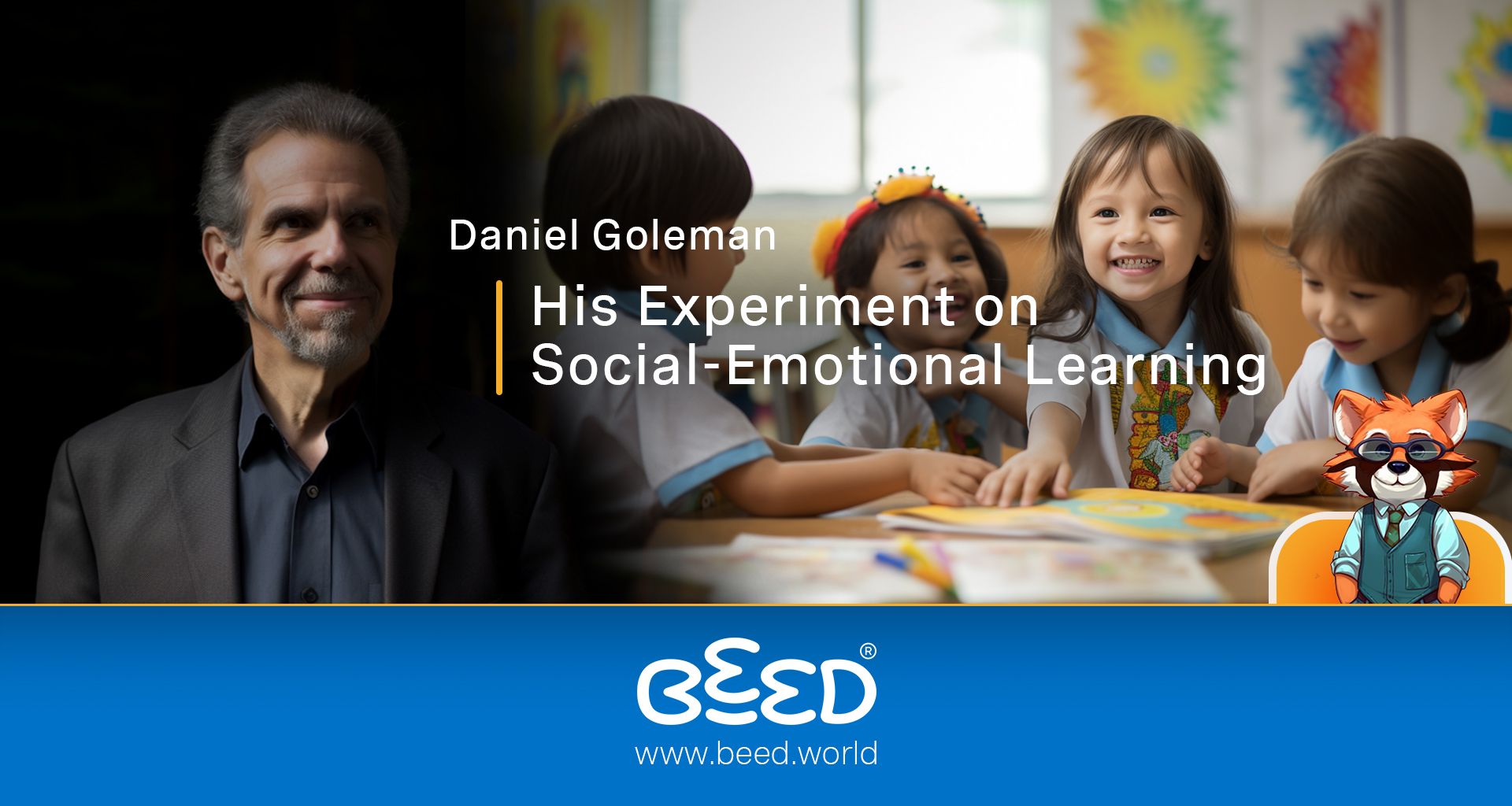Daniel Goleman and His Experiment on Social-Emotional Learning

Daniel Goleman is a psychologist and author who is best known for his work on emotional intelligence. In his book "Emotional Intelligence: Why It Can Matter More Than IQ," Goleman argued that emotional intelligence is just as important as IQ for success in life.
Goleman defined emotional intelligence as the ability to understand and manage one's own emotions as well as the emotions of others. He argued that emotional intelligence is important for a variety of reasons, including:
Academic success
Career success
Relationship success
Mental and physical health
Goleman's work on emotional intelligence has had a profound impact on the education industry. Many schools now teach social-emotional learning (SEL) programmes, which are designed to help students develop their emotional intelligence skills.
One example of an SEL programme is the Collaborative for Academic, Social, and Emotional Learning (CASEL) model.
The CASEL model focuses on five key SEL skills:
Self-awareness
Self-management
Social awareness
Relationship skills
Responsible decision-making
SEL programmes have been shown to have a number of benefits for students, including:
Improved academic achievement
Reduced behavioural problems
Increased social and emotional well-being
Goleman's experiment on social-emotional learning began in the early 1990s, when he was working as a science journalist. He was interested in learning more about the role of emotions in education.

Goleman visited a number of schools that were teaching SEL programs. He was impressed by the results that he saw.
Students who were participating in SEL programmes were achieving higher academically, had fewer behavioural problems, and were more socially and emotionally well-adjusted.
Goleman's work on social-emotional learning has helped to raise awareness of the importance of emotional intelligence in education. Many schools now recognise that SEL is just as important as academic learning.
Here is a case study of how an SEL programme has been used to improve student achievement in a high-poverty school:
In the early 2000s, a high-poverty school in California implemented a CASEL-based SEL program. The school had a long history of low academic achievement and high behavioural problems.
After one year of implementing the SEL programme, the school's math and reading test scores showed significant
improvement. The school also reported a decrease in behavioural problems.
The school's principal attributed the improvement in test scores and behaviour to the SEL programme. She said that the programme had helped students develop the skills they needed to succeed in school and in life.
Goleman's work on social-emotional learning has shown that it is possible to improve student achievement, even in high-poverty schools. By teaching students SEL skills, schools can help them reach their full potential.